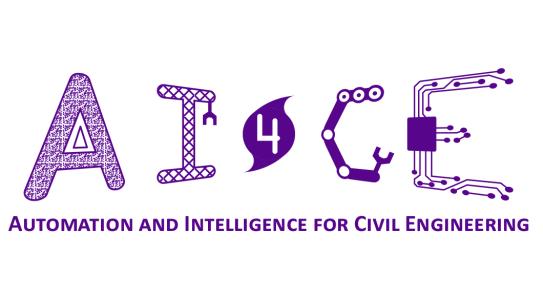Chen Feng
-
Assistant Professor

Chen Feng is an assistant professor with a joint appointment to Tandon’s Department of Civil and Urban Engineering and Department of Mechanical and Aerospace Engineering. He earned a bachelor’s degree in Geodesy and Geomatics in 2010 from Wuhan University, in China, and then entered the University of Michigan, in Ann Arbor, where he earned an MSE in Construction Engineering and Management (2012), an MSE in Electrical Engineering: Systems (2013), and a Ph.D. in Civil Engineering (2015).
Prior to NYU, Chen was a research scientist at the Computer Vision Group at the Mitsubishi Electric Research Laboratories (MERL), where he worked on visual simultaneous localization and mapping (vSLAM) and deep learning for autonomous driving and robotics, and invented several patented algorithms.
Chen Feng is currently leading a multidisciplinary research group named AI4CE (pronounced as A-I-force), which stands for Automation and Intelligence for Civil Engineering, and aims to advance robot vision and machine learning through multidisciplinary use-inspired research that originates from civil/mechanical engineering domains.
Research News
AI-powered and Robot-assisted Manufacturing for Modular Construction
Semiha Ergan, assistant professor in the Departments of Civil and Urban Engineering, and Computer Science and Engineering and Chen Feng, assistant professor in the departments of Civil and Urban and Mechanical and Aerospace Engineering will lead this project.
Modular construction, with an established record of accelerating projects and reducing costs, is a revolutionary way to transform the construction industry. However, new construction capabilities are needed to perform modular construction at scale, where, as is the case in factories, the industry suffers from the dependency on skilled labor. Among the challenges this project aims to address:
- Every project is unique and requires efficiency and accuracy in recognition and handling workpieces
- Design and production-line changes are common, and require design standardization and optimization of modules, and
- Production lines are complex in space and time, and necessitate the guidance of workers while processing design and installation information accurately
To focus on these challenges while exploring modular construction within the context of Future Manufacturing (FM), this project exploits opportunities at the intersection of AI/robotics/building information modeling and manufacturing, with the potential to increase the scalability of modular construction.
The research will pioneer initial formulations to enable (a) high throughput in manufacturing through the definition and evaluation of processes that embrace real-time workpiece semantic grounding and in-situ AR-robotic assistance, (b) feasibility studies of optimizing and standardizing the design of modules, and utilization of a cyber-infrastructure for their standardization, (c) prototyping cyber-infrastructures as both novel ways of forming academia and industry partnerships, and data infrastructures to accelerate data-driven adaption in FM for modular construction, and (d) synergistic activities with a two-year institution to train and educate FM workforce for the potential of FM and technologies evaluated.
The team argues that, while the evaluations of technologies will focus on the modular construction, the proposed technologies could make manufacturing industries more competitive, particularly heavy manufacturing industries that share similar challenges such as agricultural, mining, and ship building. The project will therefore enhance U.S. competitiveness in production, bolster economic growth, educate students, and influence workforce behavior towards efficiency and accuracy with the skills required for leadership in FM.







